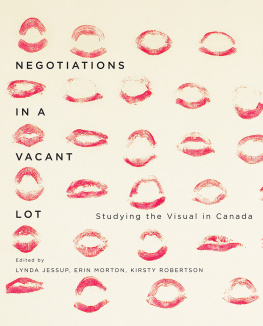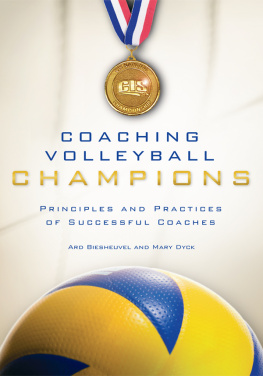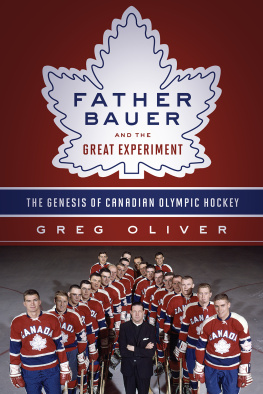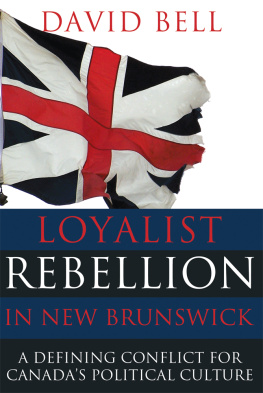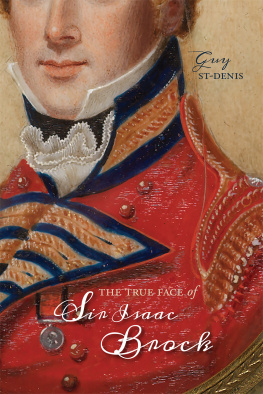Acronyms
AAUC Amateur Athletic Union of Canada
ACS/AEC Association for Canadian Studies/association des tudes canadiennes
CAHA Canadian Amateur Hockey Association
CBC Canadian Broadcasting Corporation
COC Canadian Olympic Committee
CMC Canadian Museum of Civilization
MLB Major League Baseball
NHL National Hockey League
NHLPA National Hockey League Players Association
NWOSHOF Northwestern Ontario Sports Hall of Fame
SRC La Socit Radio-Canada
WHA World Hockey Association
1
Big Liners and Beer Gardens
The Port Arthur Bear Cats, Shamateurism,
and the Selection Controversy Surrounding Canadas
1936 Olympic Hockey Team
GREG GILLESPIE
Rather than dreaming of Olympic gold, the 1936 Port Arthur Bear Cats dreamt of big transatlantic ocean liners and overflowing German beer gardens. Their dreams came from a sense of complacency after more than a decade of Canadian dominance in Olympic hockey. Beginning with the Winnipeg Falcons in 1920, the Canadian Olympic hockey team won every Olympic gold prior to 1936 and, in numerous cases, dominated its international competition. The Bear Cats, from the small, close-knit Northern Ontario community of Port Arthur, had every reason to feel confident, even convinced, of their impending gold medal at the 1936 Olympic Games in Garmisch-Partenkirchen, Germany.
Given their bumpy road through the Canadian Amateur Hockey Association (CAHA) in 1935, the team had little reason to feel overconfident. After all, the Halifax Wolverines, only months before, defeated the Bear Cats in the senior amateur championship of Canada.Rather than waiting for Halifax to pull a team together, the CAHA invited the Bear Cats, the team defeated in the championship game, to represent Canada in place of the Wolverines. This decision gave rise to, at the time, an unprecedented controversy in the history of amateurism and professionalism in Canada. To add national injury to Maritime insult, the Bear Cats advanced into Olympic competition and promptly lost to Great Britain, resulting in Canadas first silver medal in Olympic hockey.
In addition to this tough-to-swallow development, a series of other controversies hounded the 1936 Canadian hockey team. Issues regarding the eligibility of Canadian players on the British team led to the questioning of Canadian sportsmanship by the assembled international hockey community. Accusations of shamateurism (the bending of amateur rules) and allegations of broken-time payments (payments for missed work shifts) to players followed the team before, during, and after Olympic competition. The controversies that followed the 1936 Olympic hockey team provided the final straw in a long-standing amateurism-professionalism dialogue in hockey between the CAHA and its ally, the Amateur Athletic Union of Canada (AAUC). (Morrow 1989; Howell 2001; Gruneau and Whitson 1993, 767). In the spring of 1936, just months after the Olympic Games, the CAHA broke once and for all with the AAUC.
Two recent articles by historians Mark Savoie (2000) and John Wong (2003) examine the 1936 Olympics and the Canadian Olympic hockey team specifically. Savoies research examines the CAHAs decision to invite the Port Arthur Bear Cats to take the place of the Halifax Wolverines and the subsequent selection controversy that ensued in the Maritimes. Claiming central Canadian bias, Savoie focuses on the perspective of the Maritimes and the Halifax Wolverines. Employing sources weighted towards the perspective of the Maritime provinces, his work fails to contextualize the overall controversy and the responses of all parties involved. For example, despite its teams loss to Great Britain, the community of Port Arthur, part of the amalgamated city of Thunder Bay since 1970, enshrined the Bear Cat players native to Northern Ontario (Nummy Friday, Alex Sinclair, Bill Thompson, Jakie Nash, Arnold Deacon, Gus Saxberg, Ray Milton) and their coach Albert Pudas in the Northwestern Ontario Sports Hall of Fame (NWOSHOF) in 1987. For Port Arthur, the Bear Cats meant more than a group of simple hockey players: they were a team that was representative of Port Arthur and that reflected its community values and small-town identity (see Bouchier 2003). With this team went the aspirations of a Northern Ontario community.
Savoies article does provide an excellent overview of how the selection controversy played out in the Maritimes. There were indeed disgruntled team officials, and no doubt this contributed to broader feelings and a sense of disenfranchisement among Maritimers and their general relationship to Canadian Confederation. However, the archives examined for this paper from the NWOSHOF, and in particular the excellent scrapbook of Port Arthur head coach Albert Pudas, fail to demonstrate any sort of sustained effort through which central Canada and the CAHA sought to alienate the Maritimes and Maritime hockey. Although Maritimers perceived the selection controversy as a snub of the Halifax Wolverines and eastern Canada generally, the central issue rests with the regional negotiation of shamateurism, particularly in relation to representative players and broken-time payments, in amateur hockey across Canada in the 1920s and 1930s, which culminated in the selection crisis in amateur hockey prior to the Olympics in 1936. No doubt, regional differences between central and eastern Canada likely played their part, but I suggest that these differences emerged from local understandings and negotiations of shamateurism between the Maritimes and central Canada. Situating this debate and controversy merely within a desire to exclude eastern Canada or eastern Canadian players from the Olympics simply fails to address the complexity of the situation.
Wongs work examines the period that immediately followed the CAHAs break with the AAUC and the new organizational relationships in hockey that developed in the wake of that important event, particularly in relation to the meeting and discussions that took place with the CAHA and the National Hockey League (NHL) (Wong 2003; Metcalfe 1992; Metcalfe 1983). Only four months after the break with the AAUC, the CAHA and the NHL came to an agreement regarding the organization and regulation between amateur and professional hockey in Canada. This established that the NHL would discontinue pinching players from the teams in the CAHA; however, in turn, the CAHA agreed to work as a feeder system for the NHL. In doing so, the CAHA made a great mistake in the history of amateur hockey: it gave the NHL a beachhead, or stake, in Canadian amateur hockey one the NHL never relinquished (Kidd 1996; Field 2002). Although the CAHA loosened its relationship with the professional NHL, it tightened its relationship with international leagues and amateur associations, including the British Ice Hockey Association, notorious for its penchant for playing Canadian players whom the CAHA had deemed ineligible.
THE SELECTION CONTROVERSY AND CANADAS 1936 OLYMPIC HOCKEY TEAM
Prior to meeting the Halifax Wolverines in the CAHA championship, the Port Arthur Bear Cats defeated the North Battleford Beavers in the western Canadian championship in 1935. After its victory over North Battleford, the small community of Port Arthur held a joyous celebration for its team, which included a short parade from the train station to the reception led by the local MacGillivray Pipe Band (Pudas 193536, 3 April 1935). Community boosterism for the Bear Cats found expression in other areas, such as newspaper articles and poetry. One spectator immortalized the victory over North Battlefield as follows: A game apiece, now watch their smoke, / As they turn on the heat, / Those fighting Bear Cats have gone bugs, / They dont know when their [sic] beat! / The coach said Out and Checkem boys! / And then there was some fun / (The final bell). The Bear Cats four, the Beavers only one (5 April 1935). Even before the 1935 season took place, those in Port Arthur knew that an invitation to represent Canada at the Olympic Games, which most considered a shoe-in for Olympic gold, rested in the balance. The Port Arthur community liked its chances, having previously won the senior amateur championship of Canada three times between 1925 and 1930 (8 March 1935). Those Tickets to Berlin, wrote a local newspaper, thrown into the Allan Cup this year by the Canadian Amateur Hockey Association, had [the] Port Arthur Bear Cats dreaming of big liners and beer gardens today as they prepared to continue their struggle for the Dominion title (17 April 1935). Having defeated North Battleford, the Port Arthur squad looked forward to meeting the Halifax Wolverines in the CAHA championship game.


